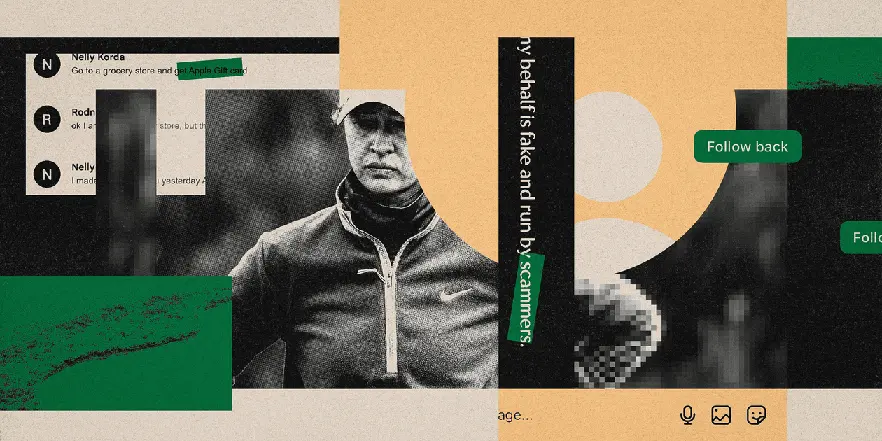T4K3.news
Catfishing scams hit LPGA community
A new report shows how impersonation of players on social media targets fans and endangers athletes, prompting tighter safety measures.

A closer look at a growing social media scam that impersonates LPGA players to swindle fans and test security across the sport.
Catfishing Scams Put Fans and Golfers in Danger
An investigation by The Athletic shows a rising catfishing pattern that preys on LPGA fans. The outlet created a fake Instagram account, then observed how quickly it was contacted by a supposed star and steered to private messaging on other platforms. The real golfer did not reach out, and Rodney Raclette from Indiana did not exist beyond the test account. The con works by impersonating an athlete, moving conversations to apps like Telegram or WhatsApp to dodge social media controls, offering perks or deals, and demanding payments through cryptocurrency or gift cards. Once money is paid, the scammer vanishes. The scheme is spreading across the LPGA with warnings from Nelly Korda, Lexi Thompson, Charley Hull, Morgan Pressel, Jennifer Kupcho, and others, along with comments from golf influencers. Victims sometimes blame the athlete even after learning it is fake, a sign of how trust erodes online. There are notable cases, including a Pennsylvania man who paid around $70,000 and a California man who paid about $50,000, believing they were connected to a player. Law enforcement faces challenges, as many culprits operate abroad and small-dollar frauds are hard to pursue. Security has become part of the sport, with players like Hailey Ostrom and Spiranac adapting to new threats. The report underscores how the blend of fandom and anonymity creates a growing danger for both fans and the athletes they follow.
Key Takeaways
"There’s really two victims. You have the person that’s been scammed, but really, the athlete is a victim, too."
Scott Stewart of TorchStone Global on dual harm from catfish scams
"It’s not only putting the players in danger, in a sense, but it’s putting all the fans in danger."
Hailey Ostrom describing the broader risk to the fan base
"I deactivated the account because of imposters, and the FBI are working on catching them."
Nelly Korda explaining why a warning page was needed
The story exposes a tension at the heart of modern sports fandom: the ease of access to athletes online versus the fragility of that trust. Scammers exploit the appeal of personal access and the allure of exclusive experiences, then disappear as quickly as they appeared. This isn’t just about money; it reshapes how fans engage with players and how players protect themselves. Platforms struggle to verify identities at speed, while cross-border fraud thrives on anonymity and crypto payments. The piece argues for stronger verification, better reporting channels, and coordinated action between clubs, leagues, and law enforcement. In the meantime, athletes must balance openness with safety, and fans must learn to verify accounts through official channels, not personal messages.
Highlights
- Two victims exist the scammer and the athlete who gets blamed
- Trust online is fragile and criminals know it
- A fake message can ruin more than a wallet
Catfishing risk to fans and players
The piece highlights financial losses and safety concerns tied to impersonation scams. It notes that many cases involve cross-border actors and crypto payments, complicating prosecution and enforcement.
As online life grows more complex, vigilance becomes part of the game.
Enjoyed this? Let your friends know!
Related News

Crypto bets shift to real world utility and AI infrastructure

Scammers take aim at Ripple XRP community

Abacus Market vanishes amid record Bitcoin sales

DWP scam alert in Merseyside

EuroMillions hits £201m jackpot

Major music acts set to perform in Manchester in 2025

Ghana mine troubles affect British investment and workers

Romance scam alert for online daters
